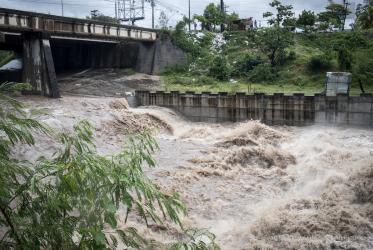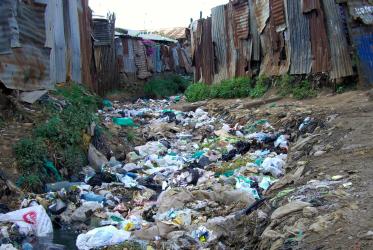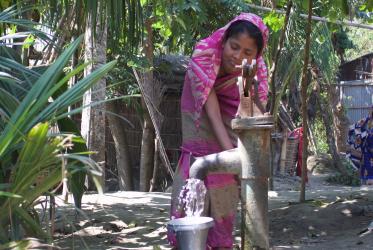Displaying 1 - 20 of 56
09 February 2024
Climate crisis fuels existing water injustice
27 October 2021
Global webinar will discuss environment, agriculture and water
03 December 2020
On World Toilet Day, sanitation is “an issue of justice”
16 November 2020
New WCC “Eco Ambassadors” pledge to protect our ecology
06 January 2020
Eco-School promotes blue communities, green churches
19 November 2019
WCC Eco-School begins in Thailand
07 November 2019
WCC represented at G20 Interfaith forum in Tokyo
13 June 2019
WCC condemns massacre of farmers in Philippines
12 April 2019
El CMI condena el asesinato de campesinos en Filipinas
12 April 2019
Le COE condamne le massacre de fermiers aux Philippines
12 April 2019













